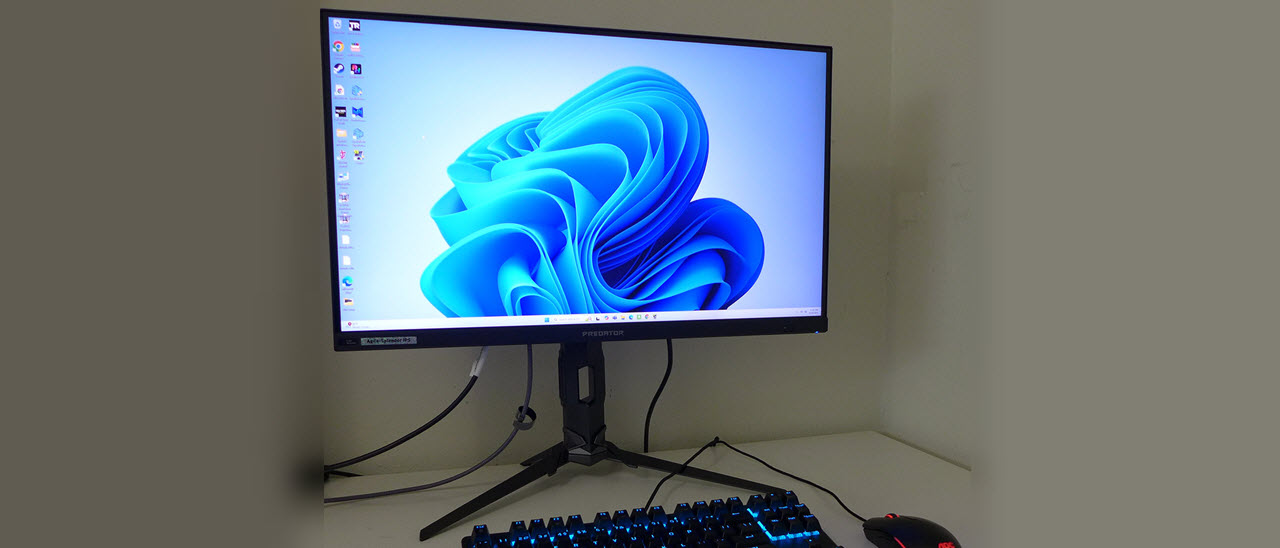Why you can trust Tom's Hardware
I have one other dual-refresh 27-inch monitor in my database to compare the XB273K V5, Alienware’s AW2725QF, which runs at 180 and 360 Hz. The remaining screens have a single rate and are Gigabyte’s GS27U, Asus XG27UCS, Samsung’s 3D G, and BenQ’s PD3226G.
Pixel Response and Input Lag
Click here to read up on our pixel response and input lag testing procedures.
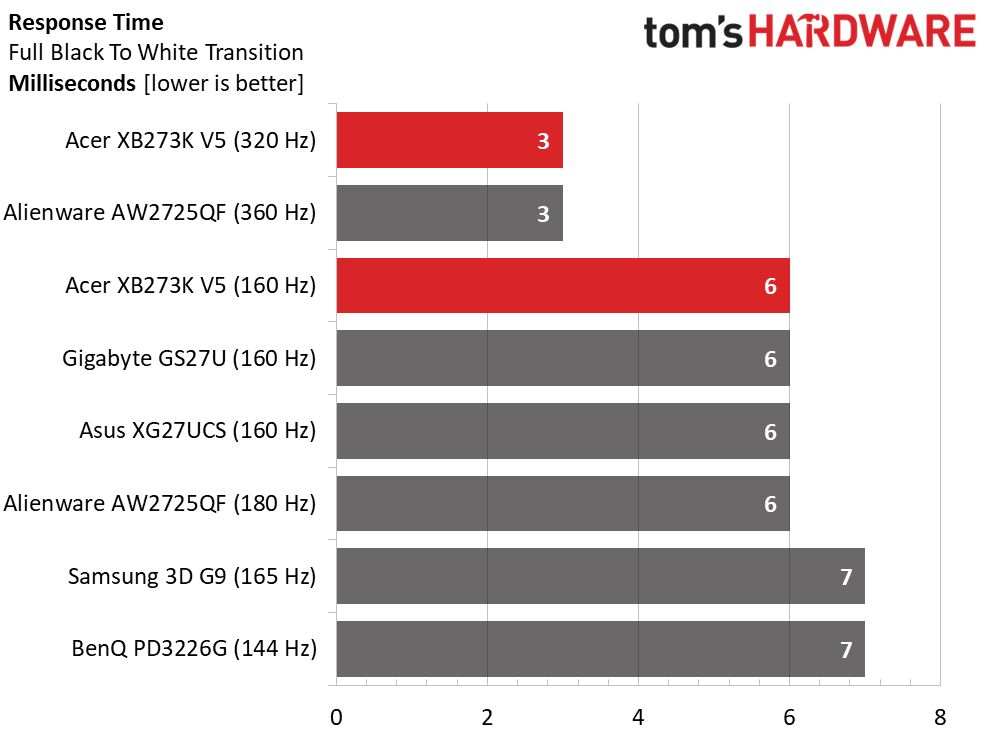
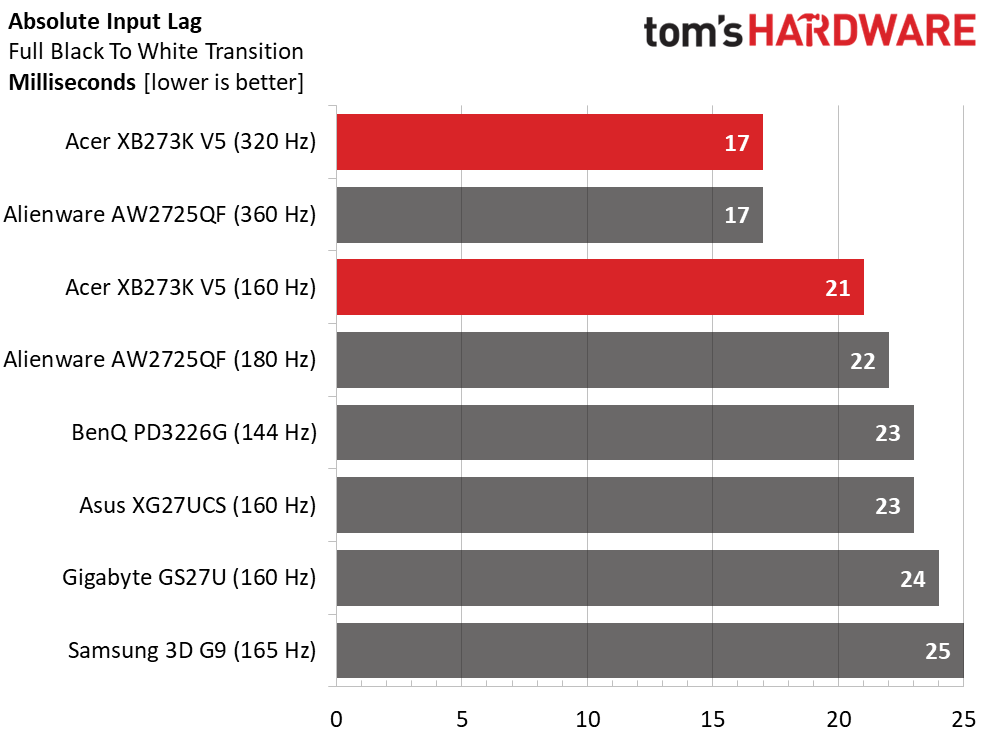
One thing that is immediately obvious when switching to the higher rate is less motion blur. 3ms is super quick, and you can easily see the difference. The Alienware’s extra 40 Hz doesn’t give it an advantage there. In fairness, though, 6 or 7ms is also fast enough for smooth motion, provided the overdrive is done properly, which is certainly the case for the XB273K V5. It is very precise at either refresh rate.
In the input lag test, you’ll get quicker control response at 320 or 360 Hz for sure. Alienware doesn’t gain an advantage there either. And the XB273K V5 is 1ms quicker at 160 Hz. Again, there isn’t a slow monitor in this bunch. All will deliver excellent gameplay.
Test Takeaway: I can’t help but note that the XB273K V5 and the AW2725QF are equal in both response and lag tests, but the Alienware costs almost $200 more. Acer delivers superlative value here with a very fast and precise gaming monitor. Its overdrive is excellent and if you want the backlight strobe instead of Adaptive-Sync, that works well too.
Viewing Angles
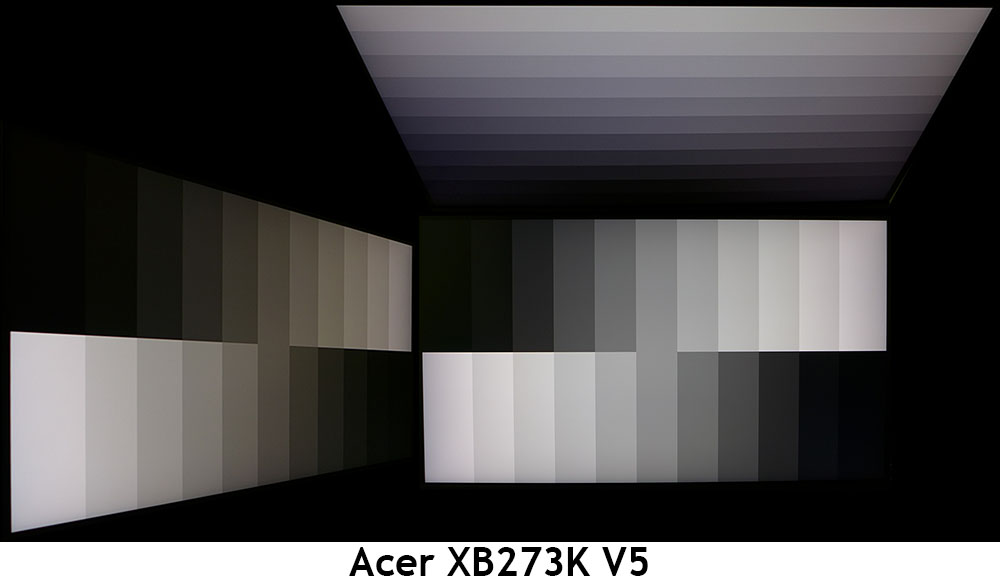
The XB273K V5 doesn’t break any new ground when it comes to IPS viewing angles. It offers decent off-axis image quality with only a slight reduction in brightness, darker gamma and a green tint at 45 degrees. This is typical performance for a current model IPS monitor. The top view has reduced brightness and gamma with a blue shift.
Screen Uniformity
To learn how we measure screen uniformity, click here.
Get Tom's Hardware's best news and in-depth reviews, straight to your inbox.
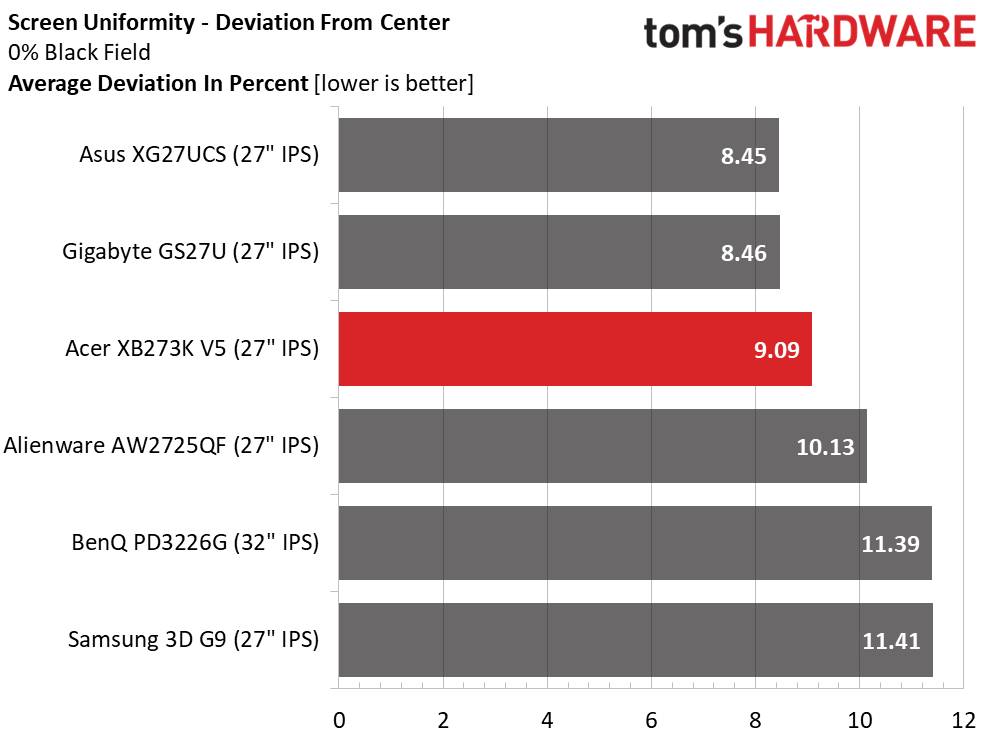
My XB273K V5 sample showed decent screen uniformity with no visible hot spots, bleed, or glow. The meter showed elevated black levels in the lower right corner, but I could not see this in content. This is solid performance.
MORE: Best Gaming Monitors
MORE: How We Test PC Monitors
MORE: How to Buy a PC Monitor
Current page: Response, Input Lag, Viewing Angles and Uniformity
Prev Page Features and Specifications Next Page Brightness and Contrast
Christian Eberle is a Contributing Editor for Tom's Hardware US. He's a veteran reviewer of A/V equipment, specializing in monitors. Christian began his obsession with tech when he built his first PC in 1991, a 286 running DOS 3.0 at a blazing 12MHz. In 2006, he undertook training from the Imaging Science Foundation in video calibration and testing and thus started a passion for precise imaging that persists to this day. He is also a professional musician with a degree from the New England Conservatory as a classical bassoonist which he used to good effect as a performer with the West Point Army Band from 1987 to 2013. He enjoys watching movies and listening to high-end audio in his custom-built home theater and can be seen riding trails near his home on a race-ready ICE VTX recumbent trike. Christian enjoys the endless summer in Florida where he lives with his wife and Chihuahua and plays with orchestras around the state.
